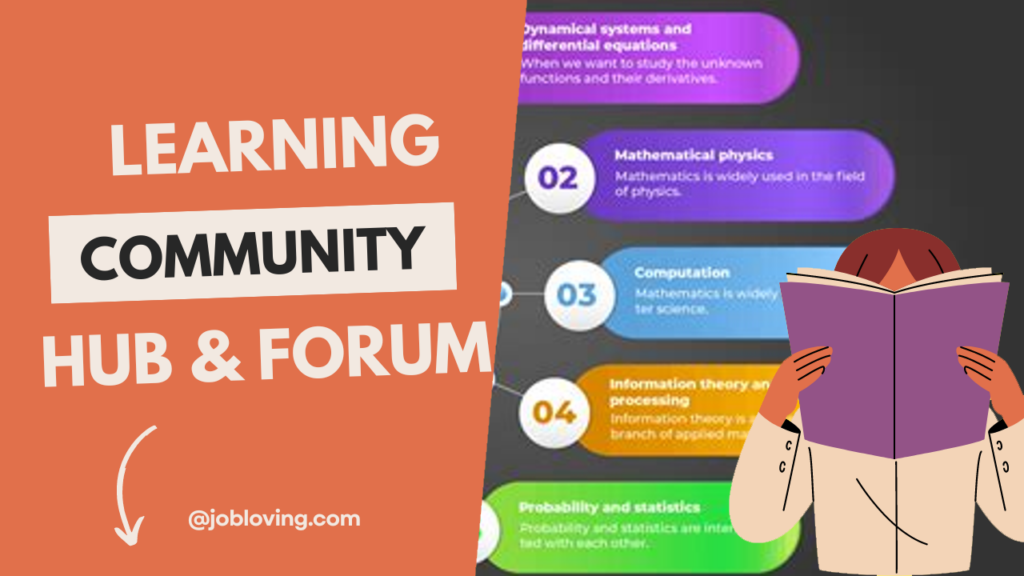Are you wondering if pursuing a degree in applied mathematics is worth the trouble? You’re not alone! With today’s job market constantly evolving, many are questioning the practical applications of their chosen fields of study. Let’s dive into how applied math can actually be your golden ticket in various industries!
The Short Answer: Absolutely Yes!
Applied mathematics is a highly adaptable skill that opens doors across multiple sectors, including finance, engineering, data science, and healthcare, among others.
Right off the bat, let’s grab that calculator and crunch some numbers! The beauty of applied math lies in its versatility. It’s not just for academics—oh no! Professionals wielding skills in applied mathematics are highly sought after in today’s competitive landscape. For instance, in finance, these whizzes develop complex financial models to predict market trends, analyze data to drive strategic decisions, and create risk management strategies that keep companies out of the red. Beyond finance, applied math can take you into realms like operational research, where you’ll optimize systems and processes, or into data analytics, helping to make sense of massive datasets to drive business decisions.
In addition to the financial realm, sectors like technology, healthcare, and even entertainment are on the lookout for applied math graduates. Ever heard of video game developers using math? Yep, they’re out there employing algorithms to create engaging and realistic gaming experiences! This major equips students with the problem-solving and analytical skills that are essential for tackling real-world challenges, making it not just useful, but quite indispensable in many ways.
In summary, an applied math major is more than useful; it’s a passport to a kaleidoscope of career opportunities. With the right knowledge and skills, you can find yourself in dynamic positions across various industries that prize analytical thinking, problem-solving, and innovative solutions. So, if you’re sitting on the fence about this major, consider joining the ranks of those who thrive on crunching numbers and making sense of the chaos!
Want to keep exploring job prospects and navigate your career path with confidence? Join the JobLoving community for more resources and insights! You’ve got questions, and we’ve got answers—let’s tackle them together!
Key takeaways about Is applied math major useful?
Job Market and Career Opportunities
- Applied mathematics major offers strong job market with projected 31% growth for mathematicians by 2031.
- Financial analyst job outlook shows 9% growth with 32,000 annual openings, average salary at $91,580.
- Mathematicians can expect 31% growth and 4,100 openings yearly, with an average salary of $108,100.
- Actuaries project 21% growth with 2,400 openings annually, earning an average salary of $105,900.
- Computer programmers anticipate 10% growth, 9,600 openings yearly, with average salaries around $93,000.
- Operations research analysts forecast 23% growth, 10,300 openings each year, earning an average of $82,360.
- Applied mathematics is a versatile major, applicable across multiple sectors, ensuring diverse career opportunities.
- Applied math graduates can find fulfilling careers in government, healthcare, and technology sectors, showcasing versatility.
- Many applied math graduates pursue advanced degrees, leading to specialized careers in research and academia.
- Many applied math graduates pivot to tech roles, leveraging coding skills gained during their studies.
Industry Applications and Utilization
- Diverse backgrounds enhance success in applied mathematics across finance, engineering, computer science, and education.
- Core practices like analysis and pattern recognition solve problems across various industries effectively.
- Finance sector demands applied math skills for financial modeling, data analysis, and risk management strategies.
- Technology industry relies on applied mathematics for algorithm design, software development, and complex problem-solving.
- Scientific research utilizes applied mathematics to analyze data and develop new theories in various fields.
- Government roles in applied mathematics focus on national security, public policy analysis, and data interpretation.
- Healthcare applications of applied mathematics include patient data interpretation and algorithm development for care improvement.
- Business analytics leverages applied mathematics to identify trends, patterns, and impacts on company performance.
- Applied math skills are valuable in sectors like finance, engineering, and data analysis, broadening career paths.
- Applied math training helps develop problem-solving skills, beneficial in various professional environments.
Educational Pathways and Graduate Outcomes
- A master’s in applied mathematics enhances job prospects and salary potential in various industries.
- Advanced degrees provide opportunities for leadership roles, further education, and specialized career advancements.
- Online master’s programs, like those at Johns Hopkins, accommodate working students in applied mathematics.
- Specializing in areas like probability, statistics, or modeling enhances expertise and marketability in applied math.
- Graduates with applied math degrees often find roles in diverse fields, enhancing job opportunities significantly.
- Graduates often find themselves in unexpected roles, leveraging math skills in creative and innovative ways.
- Employers increasingly seek candidates with strong quantitative skills, making applied math degrees highly relevant.
- Networking plays a significant role in securing job opportunities for applied math majors post-graduation.
- Graduates with dual degrees, like math and computer science, often have a competitive edge in job markets.
- Internships are crucial; many graduates struggle to find jobs without relevant work experience during college.
Job Market Challenges and Realities
- Job market competitiveness can be daunting; many graduates face challenges in securing positions immediately after college.
- Career paths for applied math majors can be non-linear, with many transitioning to unrelated fields.
- Some graduates pursue teaching roles, combining their math knowledge with education to inspire future students.
Skills Development and Job Readiness
- Applied math majors can transition into tech roles, especially with skills in data science and programming.
- Career services and alumni networks support students in navigating career paths in applied mathematics.
- Financial analytics roles for applied math graduates often yield high salaries and strong job growth prospects.
- Applied mathematics training fosters essential analytical skills relevant in various industries.

